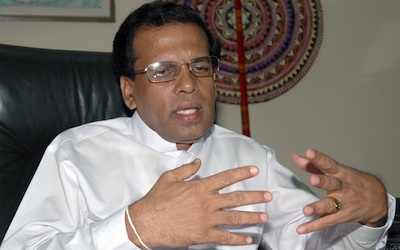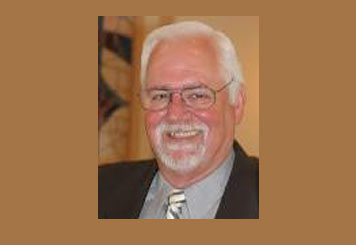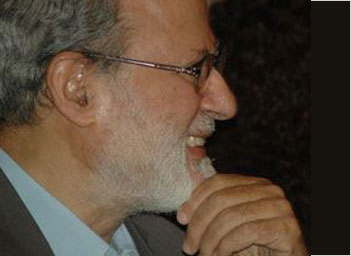 ASSSEMBLIES of God pastors across the US are integrating children’s material into their standard services, and teaching the same biblical topics for all age groups simultaneously.
ASSSEMBLIES of God pastors across the US are integrating children’s material into their standard services, and teaching the same biblical topics for all age groups simultaneously.
For three pastors in Illinois, Florida and Texas, this concept of family-focused ministry has been implemented in their churches within the last few years. This ministry model brings an incredible opportunity for pastors to extend beyond church walls to invest in families and leave a lasting impact on their church.
At Riverside Church (AG) in Sebastian, Florida, curriculum by well-known children’s pastor and Influence Resources author Brian Dollar was recently used in children’s services. Lead Pastor Grant Foster developed sermons geared for adults based on the children’s series, so essentially everyone in the church was learning the same material simultaneously.
Foster has been serving at Riverside for 25 years – 22 as the children’s pastor and three as the current lead pastor – so that provides him with a unique perspective when developing sermon content that is age appropriate for kids. “What was really cool about the whole thing was when parents would head home with their kids in the car, and they’re talking about the same topics and scriptures that the kids were talking about,” Foster says. “Parents found that unbelievable that the things they were learning were also being taught to preschool, elementary and middle school children.”
The Parks Church (AG) is a relatively new church plant in the North Dallas area that has been integrating main service topics into children’s service since its beginnings in 2011. Family Pastor Eric Clanton works with Lead Pastor Kyle Redel to match lessons weekly, following an expository teaching of the Bible that’s relevant to adults and children alike. Currently, the church is focusing on the book of Matthew.
“We go through the Bible, break it up by natural topics, and just go through it week by week,” Clanton says. “We match kids’ lessons to the adults’ because our hearts are to see everyone’s lives changed. If it’s in the book we’re covering, we’re going to go through the material and discuss it as a church. We want to teach our congregation Biblical truths,” Clanton says, “not hide them from things that God wants them to hear.”
For Jared Massey, associate pastor at Warsaw (Illinois) Assembly of God, focusing on ministry to the family unit is as simple as holding a combined family service once a month. These services reflect on the heart of Warsaw AG – providing ministry to the whole family. “When we’ve done joint services, we’ve seen more people join us for service because they enjoy learning in combined atmosphere,” Massey says. “The whole family worships, learns and works together, which is strategic.”
For a recent family service, Massey used Faith Case curriculum to teach a lesson where all ages are involved and learning together. Massey, who has a degree in children’s ministry, says these “Family eXperience” services have been a huge success with parents and children. By bringing in an extra participation element with competitive games and a trophy, the services are also attractive to family members who may not regularly participate in services.
While the idea of family-focused ministry that these three churches strive to follow is similar to “orange concept” churches, where churches hold one service for the whole family, Foster explains there are noticeable differences. “While this concept is pure and right,” he says, “the way it’s transpired doesn’t work. There are two things that happen – either the sermon is geared too far towards kids and you lose the adults’ interest, or the opposite, where the sermon is geared too far towards the adults and the kids don’t understand the content.” The model where everyone is learning the same things but in separate services is something to lean towards, Foster says, since services are geared towards certain age groups and everyone feels like they’re receiving something.
“I think the Church is missing it when they don’t try to get everyone on the same page,” Foster says. “Our church’s focus when moving forward will eventually be more of that, where we’re doing the same thing in all services.” It’s imperative that services have a family focus, so that the whole family is learning and discussing the same biblical topics and issues together at home.
By following up with children this way, it creates a family dynamic. If parents aren’t comfortable teaching their kids lessons from the Bible, they have a hard time engaging with them regarding what they learned at church, Clanton says. In this approach where parents are taught the same as their children, they can connect with the kids on what was discussed and ask key questions from the service.
While many parents don’t think they know enough of the Bible to talk with their kids about it, they’re able to take what they learned Sunday and teach on that lesson all week. “We have children’s services for an hour or so each Sunday, while the parents have their children at home all week,” Clanton says. “If we can get families talking about the gospel and provide biblical truths, we can equip parents to feel comfortable discussing what they’re learning with their kids. We look at each topic and take it from the kids’ perspective, thinking through how it would relate to their life and teach them in a way that they can understand.”
While adults can enjoy what kids are learning in this setting, Massey explains, it’s challenging to hold services the opposite way, where children are learning with the adults. Still, pastors can integrate children’s materials into their main services to make them more age appropriate and understandable for children in attendance.
“It’s important for pastors to be animated and creative when they’re teaching kids so they can stay engaged with the message. The senior pastor should have a vision and a passion to minister to all generations,” Massey says. “I also think it’s important that pastors understand they need to come out of their shell. It’s okay to ask for help from children’s pastors and leaders when teaching the main service.”





















